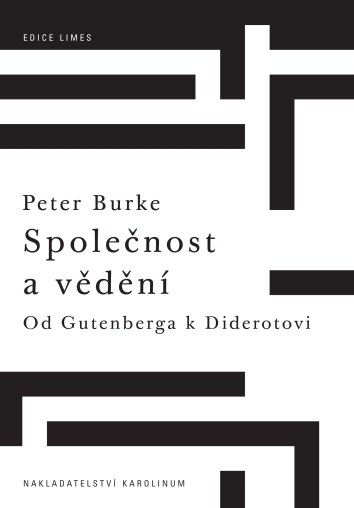
Společnost a vědění
Od Gutenberga k Diderotovi
subjects:
history, philosophy, sociology
series:
Limes
paperback, 306 pp., 1. edition
translation: Pokorný, Martin
published: november 2007
ISBN: 978-80-246-1319-2
recommended price: 230 czk
summary
This book by a renowned Cambridge historian, a leading representative of the "new history" wave, addresses the changes in the status of knowledge in the early modern period. It is not only based on sociological tendencies in the American history of science, but mainly on approaches influenced by essential changes in the theory and history of scientific knowledge in the 1920s (Claude Lévi-Strauss, Thomas Kuhn, Michel Foucault, Peter Berger and Thomas Luckmann) – the discovery of "concrete thinking", discursive and institutional nature of knowledge, the structure of scientific "revolutions", the reality as a "social construct", and further also on Émile Durkheim's social anthropology and Karl Mannheim's sociology. It also relates to the newer theories (Pierre Bourdieu's "cultural capital", for instance) or the history of truth as a social construct (Steven Shapin). Burke notices the changes of the traditional categories of knowledge – "art" (ars) and "science" (scientia) – and shows that in the modern era, it was not simply a cumulative growth of knowledge, but rather an interconnection of progress and regress in different spheres of knowledge. It covers the relations of alternative and official knowledge, examines the relations of new scientific knowledge to demonology, black magic, etc. He also observes the interaction between the theoretical knowledge of scholars and practical knowledge of craftsmen. The picture of the "plurality of knowledges" in the book is completed with references to orally transmitted knowledge, fields of knowledge not treated theoretically (cooking, hunting, etc.), museum collections, encyclopedic projects, etc. The chapters focus on sociology, geography and anthropology of knowledge, and further to its political and economic aspects, the role of a reader and questions of reliability of scientific knowledge.
newest releases in the series
